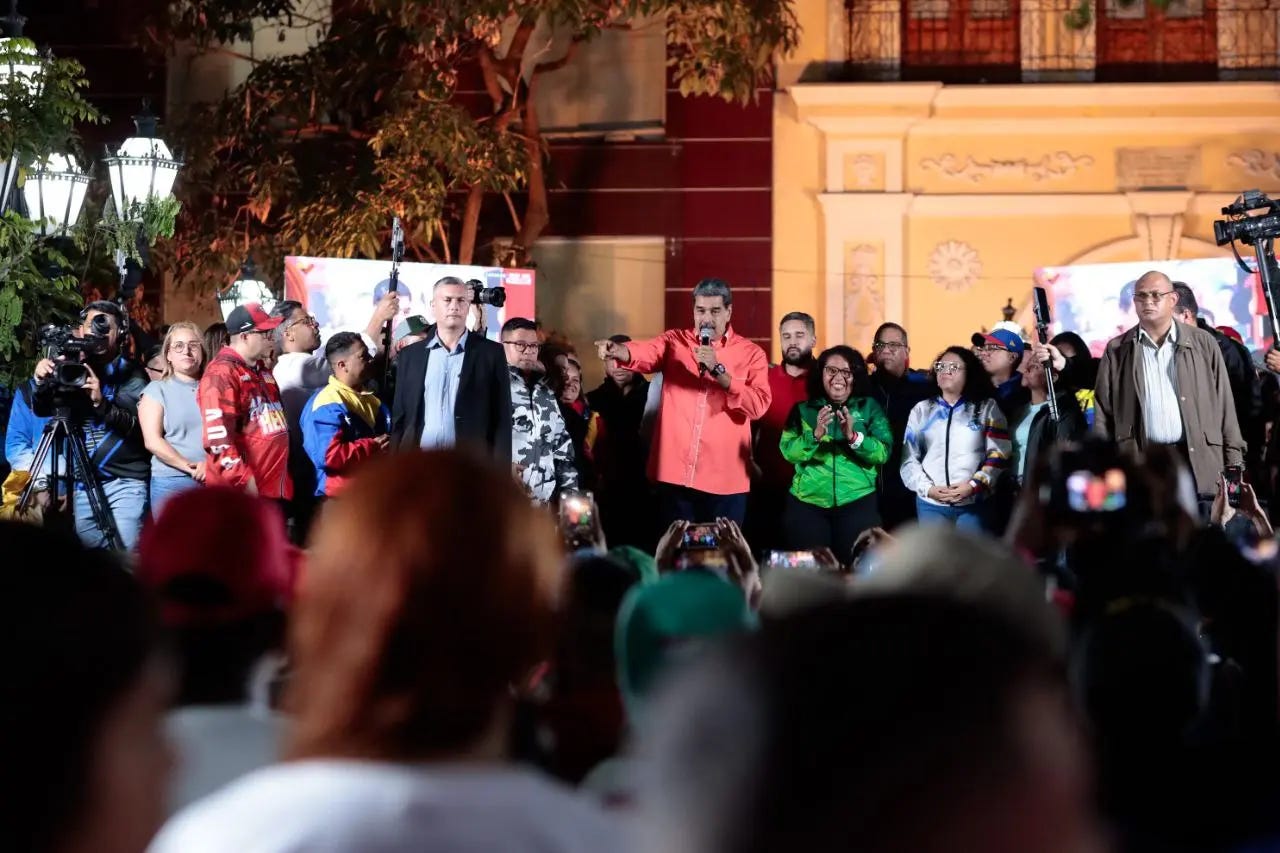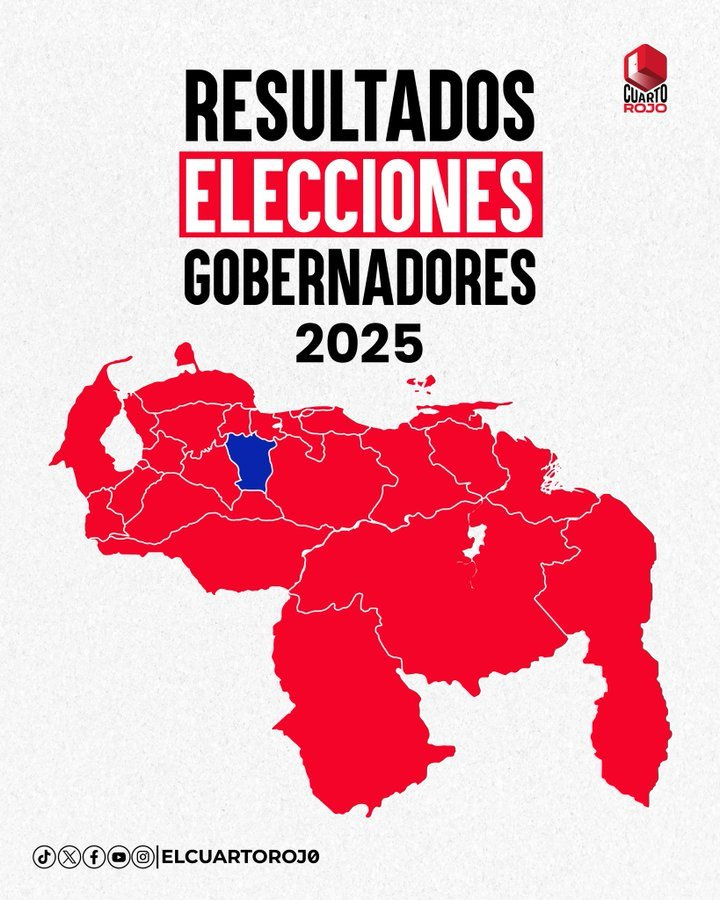Maduro celebrates sweeping victory in Venezuela: but few people likely voted
Electoral council declined to publish precinct-level data, making confirmation of government claims impossible
Venezuela held parliamentary and local elections on Sunday. Nicolás Maduro's United Socialist Party of Venezuela (PSUV) announced that it had achieved a supermajority in the National Assembly and 23 out of 24 governorships.
The country’s National Electoral Council (CNE), which is controlled and staffed by PSUV, also announced the creation of a new state in Guayana Esequiba, a territory Maduro falsely claims belongs to Venezuela.
The CNE also declined to publish precinct-level ballots that could be used to independently confirm its election claims. Nonetheless, in official statements, the election commission claimed Maduro’s coalition achieved over 82% of the vote in an election with a 41% participation rate.
Reports from polling stations, however, showed empty voting booths, often with more soldiers than citizens. Multiple people in Venezuela who voted told PWS that lines were shorter than they had ever seen for regional elections.
“A lot of people are just fed up after the stolen elections last year,” said one voter who asked not to be identified. “People just don’t believe voting matters, or they’re scared.”
Opposition leader María Corina Machado had called for boycotting elections in the weeks leading up to elections, though some sectors of the opposition did participate.
In a video after polls closed, Machado released a video claiming “victory”, and claiming that voter participation was roughly 15%. “More than 85% of Venezuelans disobeyed this regime and said no,” she said in the video.
The voter in Caracas who spoke to PWS, however, doubted that Machado’s calls for a boycott were much of a factor in the low turnout. “Maduro has made it clear elections don’t matter,” she said. “And after last year, a lot of people don’t believe ballots are confidential, and fear prosecution.”
Maduro’s government claimed a broad victory in presidential elections last year that were widely criticized as fraudulent by international observers and opposition leaders.
Amidst a crackdown on protests in the following weeks, 25 people were reportedly killed and more than 2,000 people arrested — including protesters, poll workers, political activists, and even minors .
The government also issued arrest warrants against dozens of opposition leaders, charging them with crimes ranging from conspiracy and falsifying records to “terrorism.”
Polls leading up to the elections suggested roughly 15% of registered voters were “highly likely” to vote on Sunday. The CNE website, where precinct-level election results have been published in the past, has been offline since the presidential elections last year.
The Maduro government claims the website was hacked by foreign parties in Macedonia and that they have been unable to relaunch it since.
Shortly after 6 p.m., CNE announced that some polling stations would remain open an extra hour “so that those waiting in long lines can exercise their right to vote.”
News stations and the few non-state media companies that remain in the country reported largely empty voting stations throughout the day.
For its part, PSUV described the electoral victory as proof of the resilience of the “Bolivarian revolution.” "After 26 years of revolution and 32 continuous elections of blockades, criminal sanctions, fascism and violence, today the Bolivarian revolution has shown that it is more valid than ever,” said Nicolás Maduro in Caracas before hundreds of followers.
“The death throes of fascism have tried to bring in mercenaries, and today, we have already captured more than 50 mercenaries who came in to plant bombs or launch violent attacks in the country,” he told supporters before election day.
You can also donate a one-time gift via “Buy Me a Coffee”. It only takes a few moments, and you can do so here.
Thanks for reading, and hasta pronto, piratas!



